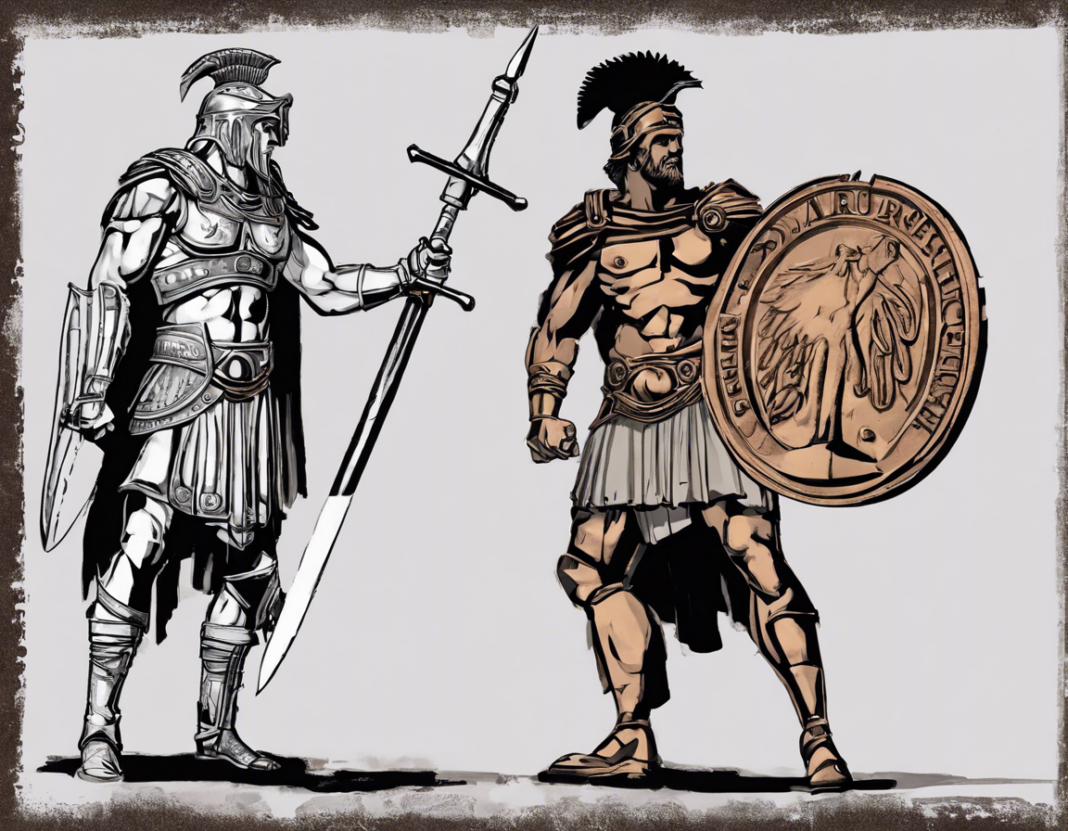Greek mythology is a vast world filled with fascinating tales, gods, and creatures that have captivated audiences for centuries. Among the many myths that have endured through time is the story of Ares and Centaur. Ares, the god of war, and the Centaur, a half-man, half-horse creature, are characters that play significant roles in Greek mythology.
Ares: The God of War
Ares, the son of Zeus and Hera, was known as the god of war and one of the Twelve Olympian gods. He was often portrayed as a powerful and fearsome figure, embodying the brutality and violence of battle. Ares was not revered in the same way as some of the other gods, such as Athena, who represented strategic warfare and wisdom. Instead, Ares was associated more with the physical and bloody aspects of war.
Key Aspects of Ares:
- Symbol: Ares was often represented by symbols such as spears, helmets, and shields.
- Personality: Ares was impulsive, hot-headed, and quick to anger, traits that often led to his downfall.
- Relationships: Ares was known for his tumultuous relationships, including his affair with Aphrodite, the goddess of love.
The Centaur: Half-Man, Half-Horse
In Greek mythology, the Centaurs were creatures with the upper body of a human and the lower body of a horse. They were known for their wild and untamed nature, often depicted as rowdy and aggressive beings. Despite their animalistic tendencies, some Centaurs were also portrayed as wise teachers and healers.
Key Aspects of Centaurs:
- Origins: Centaurs were said to be the offspring of Ixion, a king in Thessaly, and Nephele, a cloud nymph created in the image of Hera.
- Characteristics: Centaurs were known for their strength, speed, and knowledge of the natural world.
- Deeds: Centaurs were often involved in conflicts with humans and gods, leading to their reputation as unruly beings.
The Myth of Ares and the Centaur
One of the most famous stories involving Ares and a Centaur is the tale of his conflict with the Centaur named Cyllarus. Cyllarus was a noble Centaur known for his bravery and skill in battle. During a war between the Centaurs and the Lapiths, a group of humans, Cyllarus encountered Ares on the battlefield.
The Encounter:
- Conflict: Ares and Cyllarus clashed in a fierce battle, each using their strength and prowess to gain the upper hand.
- Fatal Blow: In a tragic turn of events, Ares delivered a fatal blow to Cyllarus, mortally wounding the brave Centaur.
- Grief: Despite his victory, Ares was said to have felt a sense of remorse for killing Cyllarus, recognizing his valor and courage in battle.
The Symbolism of the Ares-Centaur Myth
The myth of Ares and the Centaur is rich in symbolism and themes that are prevalent in Greek mythology. The conflict between the god of war and the half-man, half-horse creature represents the eternal struggle between civilization and primal instincts, order and chaos, and the divine and the earthly realms.
Key Themes:
- Violence vs. Valor: The clash between Ares and Cyllarus highlights the contrast between mindless violence and noble bravery.
- Hubris and Remorse: Ares’ regret after killing Cyllarus reflects the consequences of hubris and the acknowledgment of one’s actions.
- Man vs. Beast: The Centaur represents the wild, untamed aspects of nature, while Ares embodies the discipline and power of civilization.
Frequently Asked Questions (FAQs)
1. Who were the parents of Ares and the Centaur in Greek mythology?
Ares was the son of Zeus and Hera, while the Centaurs were said to be the offspring of Ixion and Nephele.
2. What is the significance of the conflict between Ares and the Centaur in Greek mythology?
The conflict symbolizes the eternal struggle between civilization and primal instincts, order and chaos, and the divine and earthly realms.
3. Why is Ares often portrayed as a controversial figure in Greek mythology?
Ares embodies the brutal and violent aspects of war, contrasting with the strategic and wise warfare represented by other gods like Athena.
4. What are some key characteristics of Centaurs in Greek mythology?
Centaurs are known for their strength, speed, and wisdom about the natural world, as well as their unruly and aggressive tendencies.
5. How does the myth of Ares and the Centaur resonate with contemporary themes and values?
The themes of violence vs. valor, hubris and remorse, and man vs. beast are still relevant today, reflecting timeless aspects of human nature and society.
In conclusion, the myth of Ares and the Centaur is a powerful and poignant tale that delves into the complexities of human nature, morality, and the eternal struggle between conflicting forces. By exploring this myth, we gain a deeper understanding of Greek mythology and the enduring themes that continue to resonate with audiences throughout time.




